The most ambitious PC games
These games strained against the technical and design limitations of PC gaming and did something that had never been done before.
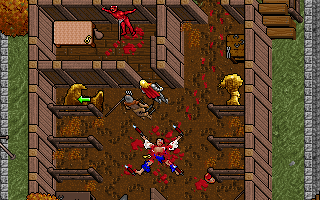
Ultima VII: The Black Gate (1993)
Get used to seeing the word Ultima. Ultima VII came out in 1993, and still games like Divinity: Original Sin measure themselves against its success. Its biggest success was creating a living world, where peasants went home at night, weather blasted the world, your companions had to be fed, and, yes, where you could get some flour and water, mix it into dough, stick it in an oven, and get your own deliciously crispy bread. On top of this was an incredibly mature story that continued the series’ love of more advanced storytelling than most games of the era (previous ones having tackled racism, the perversion of good, and the quest for a hero worth being called one) with a complex tale of good intentions subverted by an otherworldly being of pure, but incredibly smug malevolence.
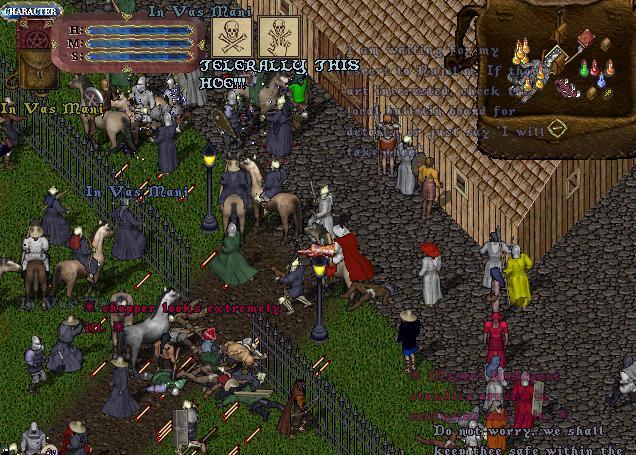
Ultima Online (1997)
Last time! Where Ultima VII brought a living world to single-player RPGs, Ultima Online brought it to multiplayer. It wasn’t the first MUD or MMO, but most of them followed the ‘Diku’ model popularised by Everquest: go forth, slay. Ultima Online wanted to create an actual world, where players would gather resources, craft houses, become shopkeepers and more, with hero just one of the many careers available. It wasn’t without its problems, the first of them being the discovery that given a world to explore and exploit, players will typically turn it into a survival of the fittest Hell. But, its scope, its potential, and the joy of it when it worked created an epic experience that’s still running today, and stories like the assassination of Lord British that will never cease to amuse.
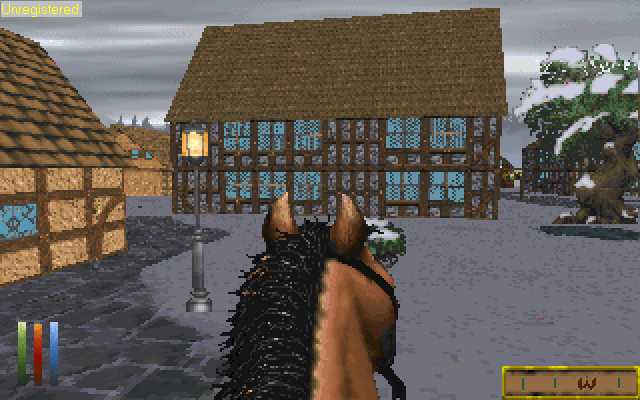
The Elder Scrolls II: Daggerfall (1996)
The second of the Elder Scrolls games asked one hell of a question: could you make a world with over 750,000 characters and a map the size of Britain actually feel like a world? We’re putting this one here instead of Elite, partly to ring the changes, but mostly because few procedural games have pulled it off so well—enough political relationships, guilds, interesting stuff to discover, and cool mechanics like being able to get turned into a werewolf or vampire.
It’s not that difficult to create raw space. Daggerfall’s own predecessor Arena offered even more. Its sequel, Morrowind, did what most games tend to, and hand-crafted a far smaller area in intricate detail. But for a moment with Daggerfall, we had a game that showed you could be epic, procedural and interesting, without simplifying everything down to the ASCII style of Rogue or putting all the impetus on the player to pretend that there was more going on behind the surface than was ever going to meet the eye.
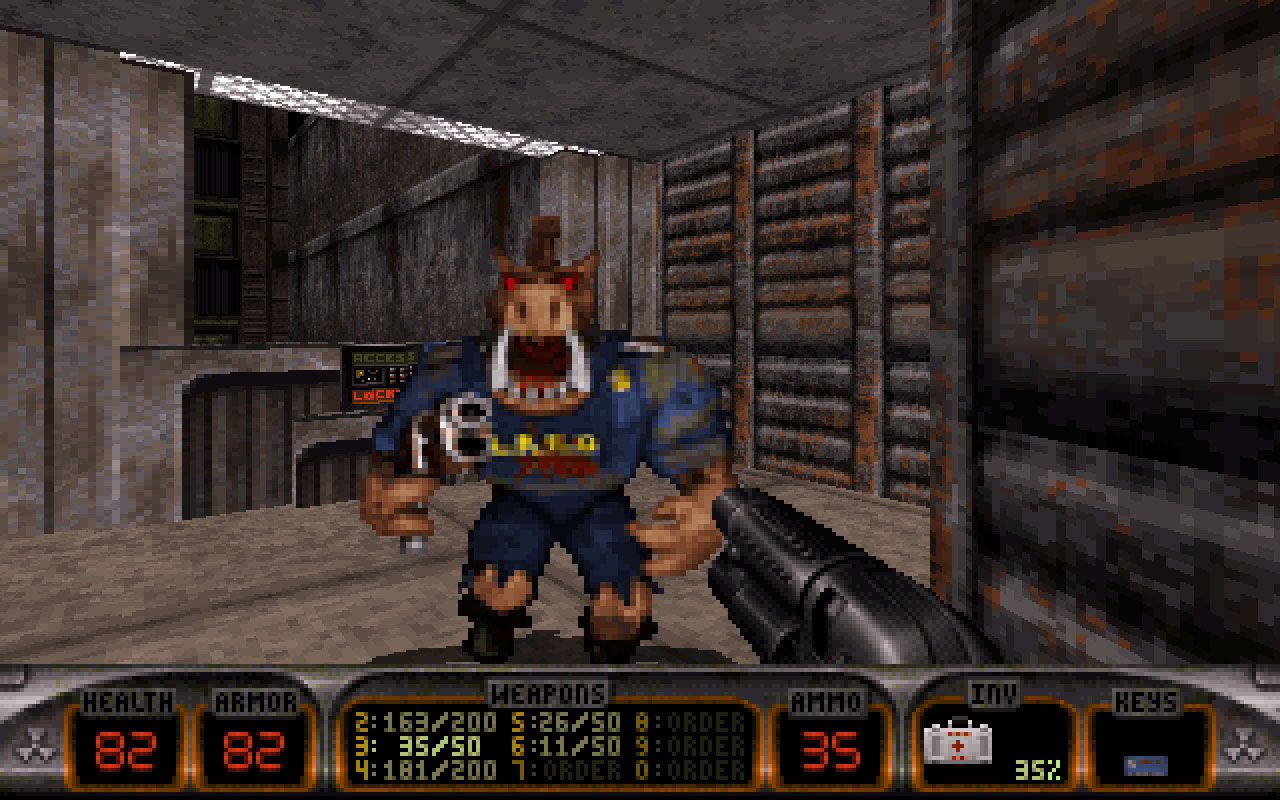
Duke Nukem 3D (1996)
While another case of a game that’s not aged all that well, Duke Nukem 3D was the game that took FPS action out of military bases and sewers and relocated it to city streets, cinemas, and other more realistic locations. That plus a complicated scripting system to blow them all up, clever tricks to fake a 3D engine (even though it was only 2.5, much like Doom) and endless imagination took Duke from being a moderate shareware star to the highest tiers of game characters. No wonder the world was willing to wait so long for Duke Nukem Forever. Even if it wasn’t worth it, in the end.
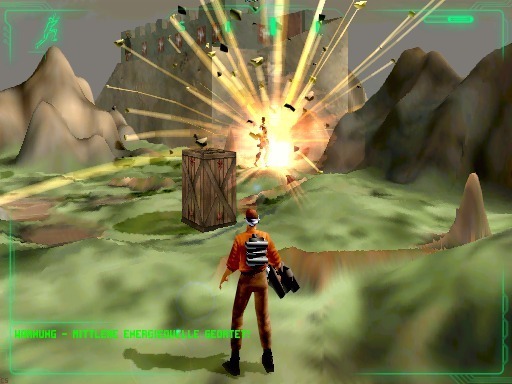
Outcast (1999)
The PC has never really had its own Legend of Zelda. Action. Exploration. A whole new world to explore. Outcast is arguably the closest its come.
A graphical powerhouse of a game that immediately impressed with its freedom, with the AI of its characters, with the glorious effects in everything from jumping into water, to your personal scanner rippling gridmarks across the scenery. There was only one problem. It was all done with voxels at a time when 3D cards were finally allowing for decent polygonal worlds, putting all the work on CPUs that couldn’t handle it. If you could play it, Outcast was an unforgettable experience. Too bad for most people it was one that had to wait until the GOG version that finally made it run, long after its prime.
Keep up to date with the most important stories and the best deals, as picked by the PC Gamer team.

